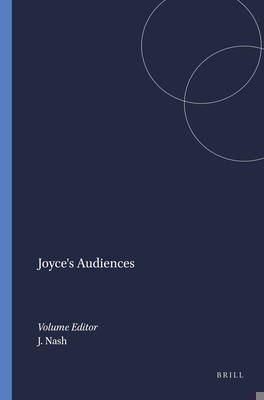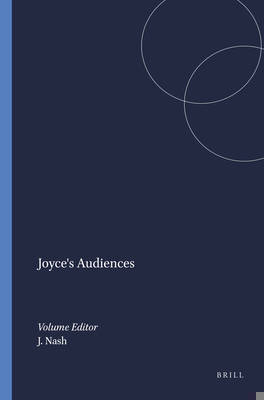
- Afhalen na 1 uur in een winkel met voorraad
- Gratis thuislevering in België vanaf € 30
- Ruim aanbod met 7 miljoen producten
- Afhalen na 1 uur in een winkel met voorraad
- Gratis thuislevering in België vanaf € 30
- Ruim aanbod met 7 miljoen producten
Zoeken
Omschrijving
This book presents for the first time a collective examination of the issue of audience in relation to Joyce's work and the cultural moments of its reception. While many of the essays gathered in this volume are concerned with particular readers and readings of Joyce's work, they all, individually and generally, gesture at something broader than a specific act of reception. Joyce's Audiences is an important narrative of the cultural receptions of Joyce but it is also an exploration of the author's own fascination with audiences, reflecting a wider concern with reading and interpretation in general. Twelve essays by an international cast of Joyce critics deal with: the censorship and promotion of Ulysses; the 'plain reader' in modernism; Richard Ellmann's influence on Joyce's reputation; the implied audiences of Stephen Hero and Portrait; Borges's relation with Joyce; the study of Joyce in Taiwan; the promotion of Joyce in the U.S.; the complaint that there is insufficient time to read Joyce's work; the revisions to "Work in Progress" that respond to specific reviews; strategies of critical interpretation; Joyce and feminism; and the 'belated' readings of post-structuralism.
Specificaties
Betrokkenen
- Uitgeverij:
Inhoud
- Aantal bladzijden:
- 232
- Taal:
- Engels
- Reeks:
- Reeksnummer:
- nr. 14
Eigenschappen
- Productcode (EAN):
- 9789042011137
- Verschijningsdatum:
- 1/01/2002
- Uitvoering:
- Hardcover
- Formaat:
- Genaaid
- Afmetingen:
- 155 mm x 230 mm
- Gewicht:
- 561 g

Alleen bij Standaard Boekhandel
+ 145 punten op je klantenkaart van Standaard Boekhandel
Beoordelingen
We publiceren alleen reviews die voldoen aan de voorwaarden voor reviews. Bekijk onze voorwaarden voor reviews.







